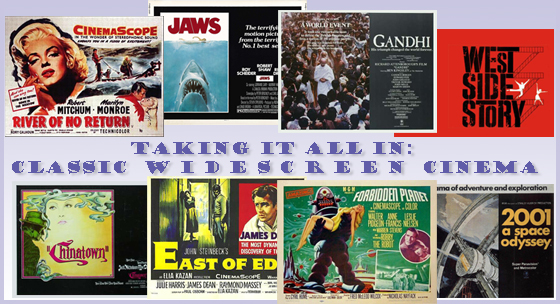
From the silent movie era into the early 1930s, the standard aspect ratio of Hollywood films was 1.33:1, a ratio developed by cinema pioneer Thomas Edison. Early in the ?talkie? era, when the soundtrack was added to the side of the film frame, the width of the image was reduced even more, creating a more square-shaped picture. Since the early 1950s, most movies have been filmed in a process where the width of the visual frame is between 1.85 to 2.4 times greater than the height. This means that for every inch of visual height, the frame as projected on the screen is between 1.85 to 2.4 times as wide. This results in a panoramic view that can add a greater breadth and perception of the environment and mood of a movie. The rise in popularity of television is credited with inciting the motion picture?s move to the widescreen systems that flourished throughout the 50s, 60s, and 70s.
Today, with widescreen and large format TVs, moviegoers are hardly expected to get excited about seeing a film in ?widescreen??, as most DVDs are presented in the same aspect ratio they were originally screened. The folks at the Webster University?s Film Series are beginning a featured series this weekend they?re calling Taking it all in: Classic Widescreen Cinema where they are showing, on their big screen at Winifred Moore Auditorium, nine classic films that once impressed audiences with their outstretched images.
All three films are shown at Webster University?s Winifred Moore Auditorium.
$6 for the general public
$5 for seniors, Webster alumni and students from other schools
$4 for Webster University staff and faculty
Free for Webster students with proper I.D.
The Webster University Film Series site can be found HERE
http://www2.webster.edu/filmseries/current.html
Here?s the line-up:
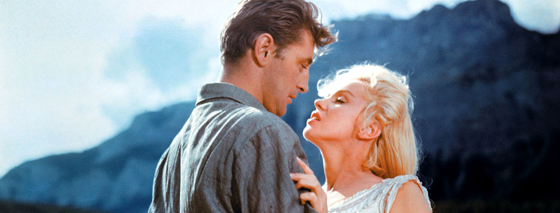
River Of No Return
Otto Preminger, 1954, USA, 91 min.
Friday, January 11 at 7:30 pm
Director Otto Preminger?s only western, River of No Return is set in Canada during the 19th century Gold Rush. Marilyn Monroe plays Kay, a sultry saloon singer. Robert Mitchum, as a homesteader with a dark past rescues Kay and her husband (Rory Calhoun) from an out-of-control river raft. To show his appreciation, Calhoun steals Mitchum?s horse, abandoning them both to hostile Indians. The Canadian Rockies are presented in vivid and true Cinemascope.
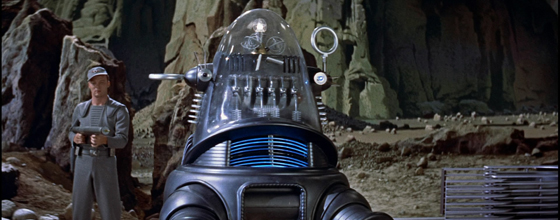
Forbidden Planet
Fred M.Wilcox, 1956, USA, 98 min.
Saturday, January 12 at 7:30 pm
This 1956 pop adaptation of Shakespeare?s The Tempest? is still one of the best, most influential science fiction movies ever made. Its space explorers are the models for the crew of Star Trek?s Enterprise, and the film?s robot is clearly the prototype for Robby in Lost in Space. Walter Pidgeon is the Prospero figure, presiding over a paradisiacal world with his lovely young daughter and their servile droid. When the crew of a spaceship lands on the planet, they become aware of a sinister invisible force that threatens to destroy them. Great special effects and a bizarre electronic score help make this movie as fresh, imaginative, and fun as it was when first released.
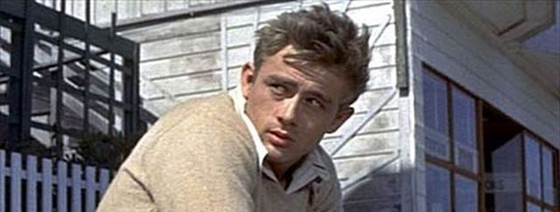
East Of Eden
Elia Kazan, 1955, USA, 115 min.
Sunday, January 13 at 7:30 pm
John Steinbeck?s best-seller was the first starring vehicle for explosive 1950s screen personality James Dean, who plays Cal Trask, the ?bad? son of taciturn Salinas valley lettuce farmer Adam Trask (Raymond Massey). Although he means well, Cal can?t stay out of trouble, nor is he able to match the esteem in which his father holds his ?good? brother Aron (Richard Davalos). Only Aron?s girlfriend Abra (Julie Harris) and kindly old sheriff Sam Burl Ives) can see the essential goodness in the troublesome Cal.
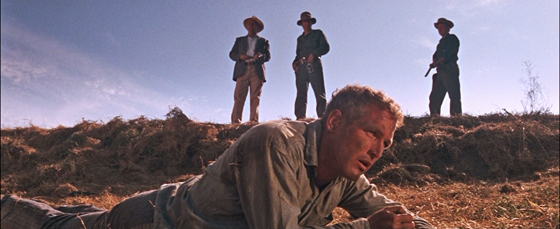
Cool Hand Luke
Stuart Rosenberg, 1967, USA, 126 min.
Friday, January 18 at 7:30 pm
Luke Jackson (Paul Newman) is sentenced to a stretch on a southern chain gang after he?s arrested for drunkenly decapitating parking meters. While the avowed ambition of the captain (Strother Martin) is for each prisoner to ?get their mind right,? it soon becomes obvious that Luke is not about to kowtow to anybody. When challenged to a fistfight by fellow inmate Dragline (George Kennedy), Luke simply refuses to give up, even though he?s brutally beaten. Soon, Luke becomes a symbol of hope and resilience to the other men in the prison camp ? and a symbol of rebelliousness that must be stamped out to the guards and the captain.
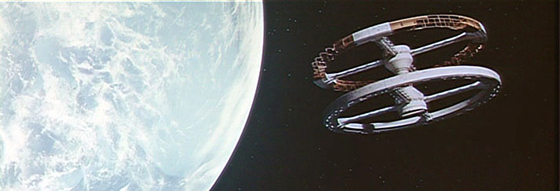
2001: Space Odyssey
Stanley Kubrick, 1968, USA, 141 min.
Saturday, January 19 at 7:30 pm
A mind-bending sci-fi symphony, Stanley Kubrick?s landmark 1968 epic pushed the limits of narrative and special effects toward a meditation on technology and humanity. Based on Arthur C. Clarke?s story The Sentinel, Kubrick and Clarke?s screenplay is structured in four movements. Despite some initial critical reservations that it was too long and too dull, 2001 became one of the most popular films of 1968, underlining the generation gap between young moviegoers who wanted to see something new and challenging and oldsters who ?didn?t get it.? Provocatively billed as ?the ultimate trip,? 2001 quickly caught on with a counterculture youth audience open to a contemplative (i.e. chemically enhanced) viewing experience of a film suggesting that the way to enlightenment was to free one?s mind of the U.S. military-industrial-technological complex.
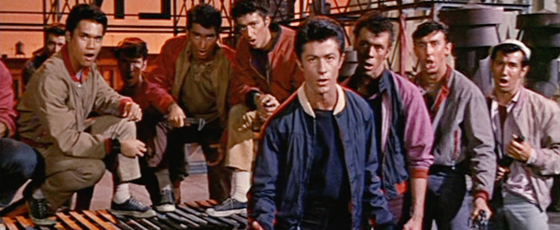
West Side Story
Jerome Robbins/Robert Wise, 1961, USA, 152 min.
Sunday, January 20 at 7:30 pm
The winner of 10 Academy Awards, this 1961 musical by choreographer Jerome Robbins and director Robert Wise (The Sound of Music) remains irresistible. Based on a smash Broadway play updating Shakespeare?s Romeo and Juliet to the 1950s era of juvenile delinquency, the film stars Natalie Wood and Richard Beymer as the star-crossed lovers from different neighborhoods?and ethnicities. The film?s real selling points, however, are the highly charged and inventive song-and-dance numbers, the passionate ballads, the moody sets, colorful support from Rita Moreno, and the sheer accomplishment of Hollywood talent and technology producing a film so stirring. Leonard Bernstein and Stephen Sondheim wrote the score.
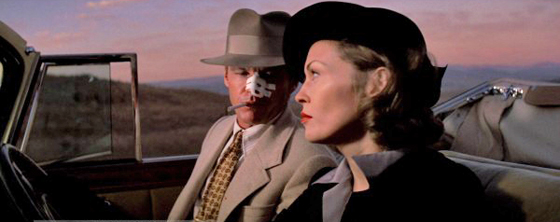
Chinatown
Roman Polanski, 1974, USA, 130 min.
Friday, January 25 at 7:30 pm
In Polanski?s revisionist film noir Jack Nicholson is private eye Jake Gittes, living off the murky moral climate of sunbaked, pre-war Southern California. Hired by a beautiful socialite (Faye Dunaway) to investigate her husband?s extra-marital affair, Gittes is swept into a maelstrom of double dealings and deadly deceits, uncovering a web of personal and political scandals that come crashing together in Chinatown.
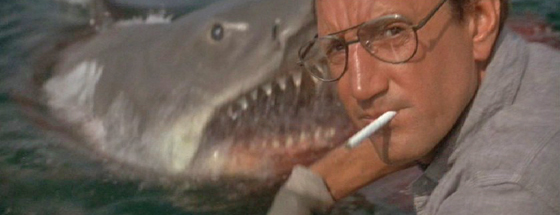
Jaws
Steven Spielberg, 1975, USA, 130 min.
Saturday, January 26 at 7:30 pm
The story of a Long Island town whose summer tourist business is suddenly threatened by great-white-shark attacks on humans bypasses the potboiler trappings of Peter Benchley?s best-selling book and goes straight for the jugular with beautifully crafted, crowd-pleasing sequences of action and suspense supported by a trio of terrific performances by Roy Scheider (as the local sheriff), Richard Dreyfuss (as a shark specialist), and particularly Robert Shaw (as the old fisherman who offers to hunt the shark down). The sequences on Shaw?s boat?as the three of them realize that in fact the shark is hunting them?are what entertaining moviemaking is all about.
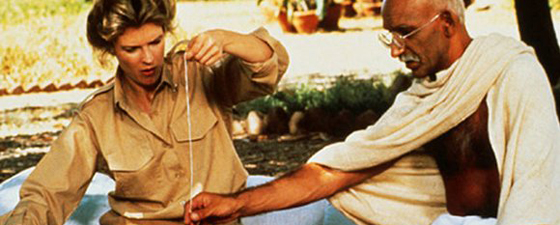
Gandhi
Richard Attenborough, 1982, USA, 191 min.
Sunday, January 27 at 7:30 pm
Sir Richard Attenborough?s 1982 multiple-Oscar winner (including Best Picture, Best Director, and Best Actor for Ben Kingsley) is an engrossing, reverential look at the life of Mohandas K. Gandhi, who introduced the doctrine of nonviolent resistance to the colonized people of India and who ultimately gained the nation its independence. Kingsley is magnificent as Gandhi as he changes over the course of the three-hour film from an insignificant lawyer to an international leader and symbol. Strong on history (the historic division between India and Pakistan, still a huge problem today, can be seen in its formative stages here) as well as character and ideas, this is a fine film.


Ada Lovelace 12/12/12 manny pacquiao Chopper Live jerry brown michael buble michael buble
No comments:
Post a Comment